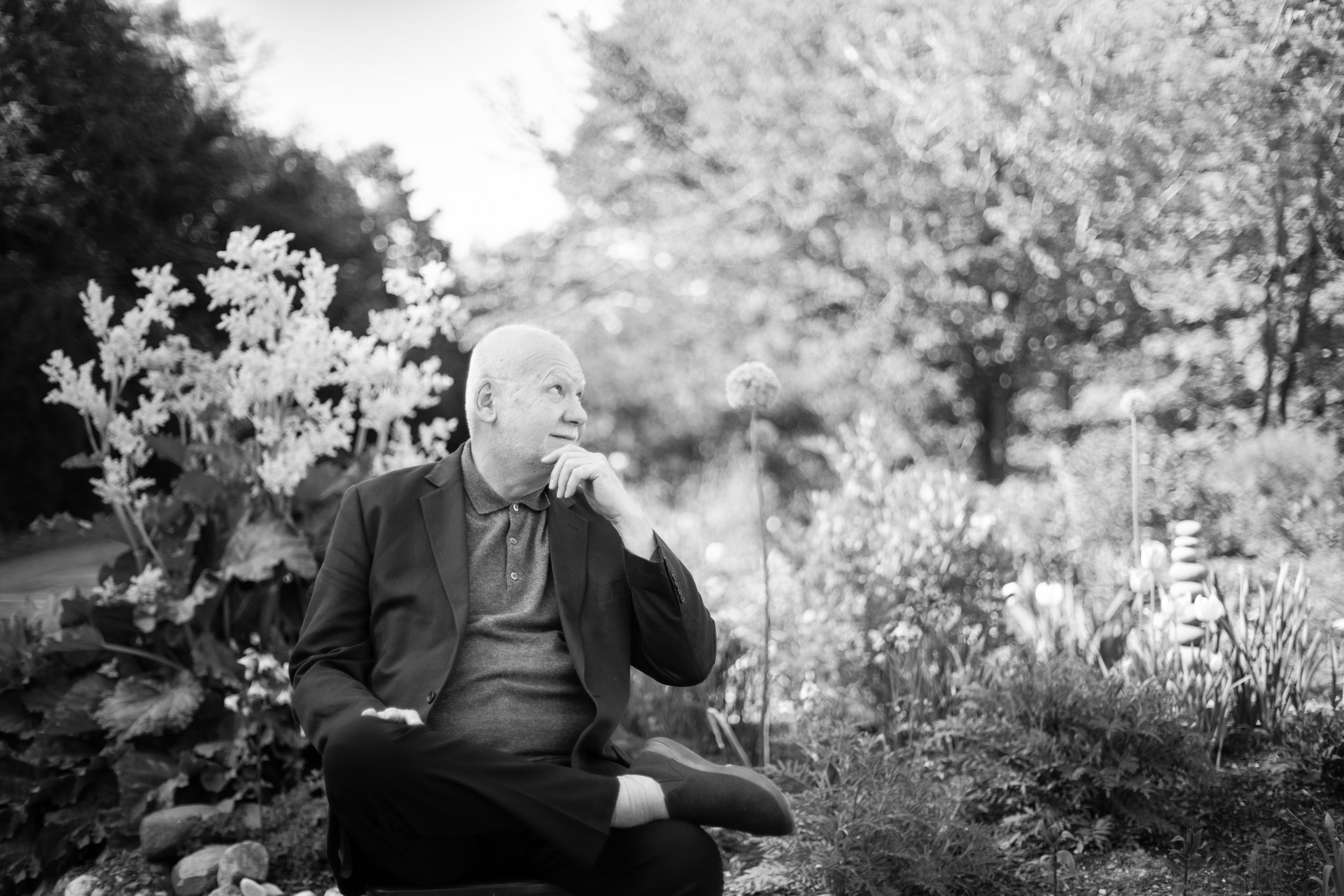
Welcome to my Blog
Thank you for stopping by. This space is where I share research, reflections, and practical tools drawn from my experience as a marriage and family therapist with an international practice. .
Are you a couple looking for clarity? A professional curious about the science of relationships? Or simply someone interested in how love and resilience work? I’m glad you’ve found your way here. I can help with that. I’m accepting new clients, and this blog is for the benefit of all my gentle readers.
Each post is written with one goal in mind: to help you better understand yourself, your partner, and the hidden dynamics that shape human connection.
Grab a coffee (or a notebook), explore what speaks to you, and take what’s useful back into your life and relationships.
And if a post sparks a question, or makes you realize you could use more support, I’d love to hear from you. Let’s explore the scope of work you’d like to do together.
Be Well, Stay Kind, and Godspeed.
~Daniel
P.S.
Feel free to explore the categories below to find past blog posts on the topics that matter most to you. If you’re curious about attachment, navigating conflict, or strengthening intimacy, these archives are a great way to dive deeper into the research and insights that I’ve been sharing for years.
- Attachment Issues
- Coronavirus
- Couples Therapy
- Extramarital Affairs
- Family Life and Parenting
- How to Fight Fair
- Inlaws and Extended Families
- Intercultural Relationships
- Marriage and Mental Health
- Married Life & Intimate Relationships
- Neurodiverse Couples
- Separation & Divorce
- Signs of Trouble
- Social Media and Relationships
- What Happy Couples Know
Why Some Couples Stay Stuck Even After “Good” Therapy
Couples often arrive with a quiet confusion.
They did the work.
They showed up.
They learned the language.
They can now say things like “When you interrupt me, I feel unseen.”
They can identify triggers.
They can name attachment styles with the ease of people ordering coffee.
And still—nothing moves.
No behavioral shift.
No relational relief.
No durable change.
This is not because the therapy was bad.
It is because insight is not the same thing as capacity.
That distinction is where many couples stall—and where therapy quietly stops working.
Insight Lives in the Mind. Change Lives in the Nervous System.
Post-Insight Immobility: Why Understanding Your Relationship Hasn’t Changed It
Couples today are more psychologically fluent than at any point in history.
They know their attachment styles.
They can name the cycle.
They understand their triggers.
They’ve learned the language.
And still—nothing moves.
This is not a failure of insight.
It is something else entirely.
Post-insight immobility is what happens when a relationship gains psychological awareness without gaining the ability to change.
In these relationships, everyone understands the problem.
No one can move it.
Why Most Relationship Advice Fails at the Moment It Matters
Nothing is wrong—until suddenly everything is.
Many couples do not arrive in crisis because they ignored advice. They arrive because they followed it.
They communicated.
They tried harder.
They used the language.
They read the books.
They scheduled the check-ins.
And still, at the exact moment where repair should begin, something collapses.
This explains why.
Below the Waterline: Why Couples Don’t Change When You Push Them
Therapy is not persuasion.
Not because persuasion is unethical.
But because it operates at the wrong depth.
Most couples don’t resist change because they don’t understand.
They resist because their nervous systems are under pressure.
And pressured systems do not reorganize.
They brace.
This is the error modern couples therapy keeps repeating: treating change as a surface event, when the forces that govern it live below the waterline.
Therapy Is Not Persuasion: Why Change Fails When It’s Forced
One of the quiet distortions in modern therapy culture is the belief that change comes from encouragement.
That if we explain carefully enough, validate deeply enough, or contextualize compassionately enough, people will eventually move toward what is healthy.
Sometimes they do.
Often, they don’t.
Because insight does not create motion.
Pressure does.
And pressure does not mean coercion—it means reality becoming unavoidable.
Therapy is not meant to convince people to change.
It is meant to clarify whether change is necessary—and whether it is wanted.
Why Modern Relationships Feel Harder Than They Should
The current crisis in modern relationships is not a lack of emotional awareness.
Partners are informed.
They are articulate.
They know their attachment styles, their triggers, their boundaries, their patterns.
What they increasingly lack is relational structure.
Over the past two decades, intimacy has been treated as something that emerges naturally once individuals become sufficiently self-aware, regulated, and autonomous.
That experiment has failed quietly.
What it produced instead is a culture of highly competent adults who can explain their loneliness in detail but cannot seem to redesign the conditions that create it.
Recent Key Relationship Concepts Used on This Site
Most relationship distress is not caused by a lack of care.
It is caused by a lack of shared language.
People feel something long before they can name it.
By the time they arrive in therapy—or on this site—they are often exhausted from explaining experiences that never quite land.
This page exists to solve that problem. Words matter.
Below are several core concepts I use in my clinical work and writing to describe common but poorly named relational dynamics.
These are not diagnostic labels. They are descriptive tools—ways of making experience legible so it can be worked with, rather than argued about. I intend to offer up these pages to my gentle readers from time to time.
Each concept links to a longer explanation elsewhere on the site, when available.
Bartleby in the Berkshires: On Silence, Setting, and the Work That Can Only Happen Away from Explanation
In Bartleby, the Scrivener, nothing dramatic happens.
No shouting.
No confession.
No final speech that explains everything.
A man is asked to work.
He replies, calmly, “I would prefer not to.”
What follows is not conflict, but collapse—of expectation, of leverage, of the assumption that participation can be extracted if one explains oneself well enough.
I think about Bartleby often in the Berkshires.
Why Couples Therapy Didn’t Work (And Why That Wasn’t Your Fault)
Most couples don’t quit therapy because they “weren’t committed enough.”
They quit because something essential never happened in the room—and no one explained why.
In my work with couples who have already done therapy—sometimes for years—this pattern is so consistent it’s almost diagnostic.
If couples therapy didn’t work for you, the cultural script offers a short list of explanations: you didn’t try hard enough, your partner was resistant, or therapy simply “doesn’t work for some people.”
These explanations are neat. They are also wrong.
Therapy often fails not because the couple failed—but because the therapeutic container was mismatched to the relationship it was meant to hold.
The Loneliest Couples Are the Ones Doing Everything Right
Some couples arrive in therapy already fluent.
They know the language.
They use the skills.
They schedule the check-ins, validate feelings, manage tone, avoid contempt, repair quickly, and talk about their attachment styles with ease.
They are not volatile.
They are not cruel.
They are not “avoidant” in any obvious way.
And yet—something is missing.
Not explosively.
Not dramatically.
Just quietly, persistently hollow.
These are the couples therapists struggle with most.
Because nothing is wrong.
And yet nothing is alive.
Weekly Therapy vs. Intensive Therapy: Same Goal, Different Physics
Most arguments about therapy models confuse preference with mechanics.
This isn’t about which approach is “better.”
It’s about what kind of change the container can physically support.
Weekly therapy and intensive therapy aim at the same outcome—relational reorganization—but they operate under different constraints.
When couples stall, it’s rarely because they lack insight. It’s because the format can’t hold the problem they’re actually having.
Why Understanding Your Relationship Hasn’t Changed It
Most couples who find their way here are not confused.
They can describe their dynamic with unsettling accuracy.
They know who withdraws, who pursues, who escalates, who goes quiet.
They’ve read the books. They’ve listened to the podcasts. They can say things like “this is my attachment style” without irony.
And yet—nothing has changed.
The arguments still land in the same places.
The distance still returns.
The same conversations keep reopening, like a door that never quite closes.
This is not because you “aren’t trying hard enough.”
It’s because understanding a system does not reorganize it.












